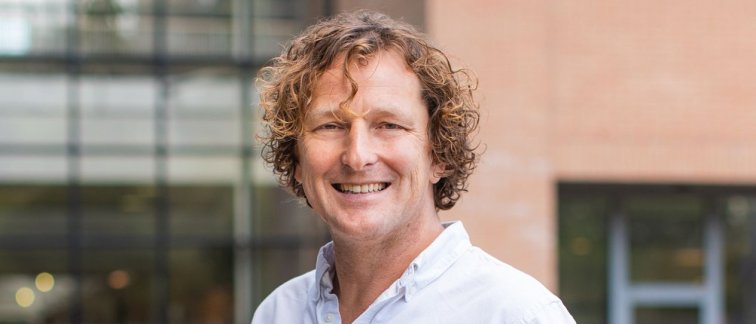Marc van der Valk: internist-infectiologist, Professor of Internal Medicine, director of the HIV monitoring foundation, and specialized in the treatment of HIV. According to him there is still plenty of progress to be made when focusing on HIV. "Although the number of new HIV diagnoses in the Netherlands is fortunately decreasing every year, it is certainly not over yet." How will the Netherlands move towards zero new infections and better quality of life for older HIV patients according to Marc?
Marc is 7 years old (1981) when the first cases of a still unknown immune disorder in young men are described. Three years later, in 1984, HIV is discovered and another year later, in 1985, it is possible to test for HIV. In those years AMC and later Amsterdam UMC played a pioneering role worldwide in the prevention and treatment of HIV/AIDS.
By now we have arrived in 2022, around 40 years later. Currently, about 83 percent of the people with HIV can no longer transmit the virus because of the success of the treatment. According to Marc van der Valk, much is going well in HIV care, but he also sees plenty of opportunities for improvement. "In the rollout of the HIV prevention pill 'prep' for example, the Netherlands is hopelessly behind. Other opportunities for improvement concern comorbidity in the elderly, late diagnoses and tailored care for specific groups." Van der Valk wants to do more research into the aforementioned issues. But he also wants to study the effect of new treatments and focus on the introduction of new forms of antiretroviral therapy, such as long-term medication, therapeutic vaccinations and treatment with neutralizing antibodies.
Comorbidity
People with HIV are getting older and (more often than average) are dealing with multiple conditions at the same time (chronic comorbidities). Van der Valk: "I want to better understand the underlying mechanisms." In the coming years, he will conduct more research into this, nationally and internationally. "Research into comorbidities in HIV has been conducted at Amsterdam UMC for more than 20 years. In the late 1990s the focus was on metabolic abnormalities in sugar and fat metabolism, caused by HIV medication with very many side effects, in combination with chronic activation of the immune system. Although very effective HIV medication later became available, these effects on the immune system persisted. This can lead to damage to organ systems."
Diagnostics and prevention
According to Marc, there are also improvements to be made in the areas of diagnostics and prevention. "Even in the Netherlands, half of all people with HIV are still diagnosed too late, with all the resulting health damage". In his oration, he states that it is feasible in the Netherlands to achieve zero new infections. "In order to achieve this, data collection, policy, and education must be even better aligned. Stichting hiv monitoring plays a crucial role in this process by collecting and analysing data from people with HIV and thus this association makes an important contribution to the early identification of trends. Organisations such as the RIVM, Soa Aids Nederland and HIV/AIDS Netherlands use this information to effectively inform and educate target groups."
Different populations
Van der Valk is an advocate of tailored care. "The HIV population in the Netherlands is very diverse, with a relatively high proportion of vulnerable individuals. We need to optimize or, if necessary, renew care for them. It is also important to find out what the impact of the increasing digitization of care is for these vulnerable populations." For the future, Van der Valk envisions an HIV clinic in which mental and physical problems are identified earlier and care is further optimized. This is possible by making smart use of the electronic patient file, which systematically collects information about the individual's well-being.
Photo: Kirsten van Santen

